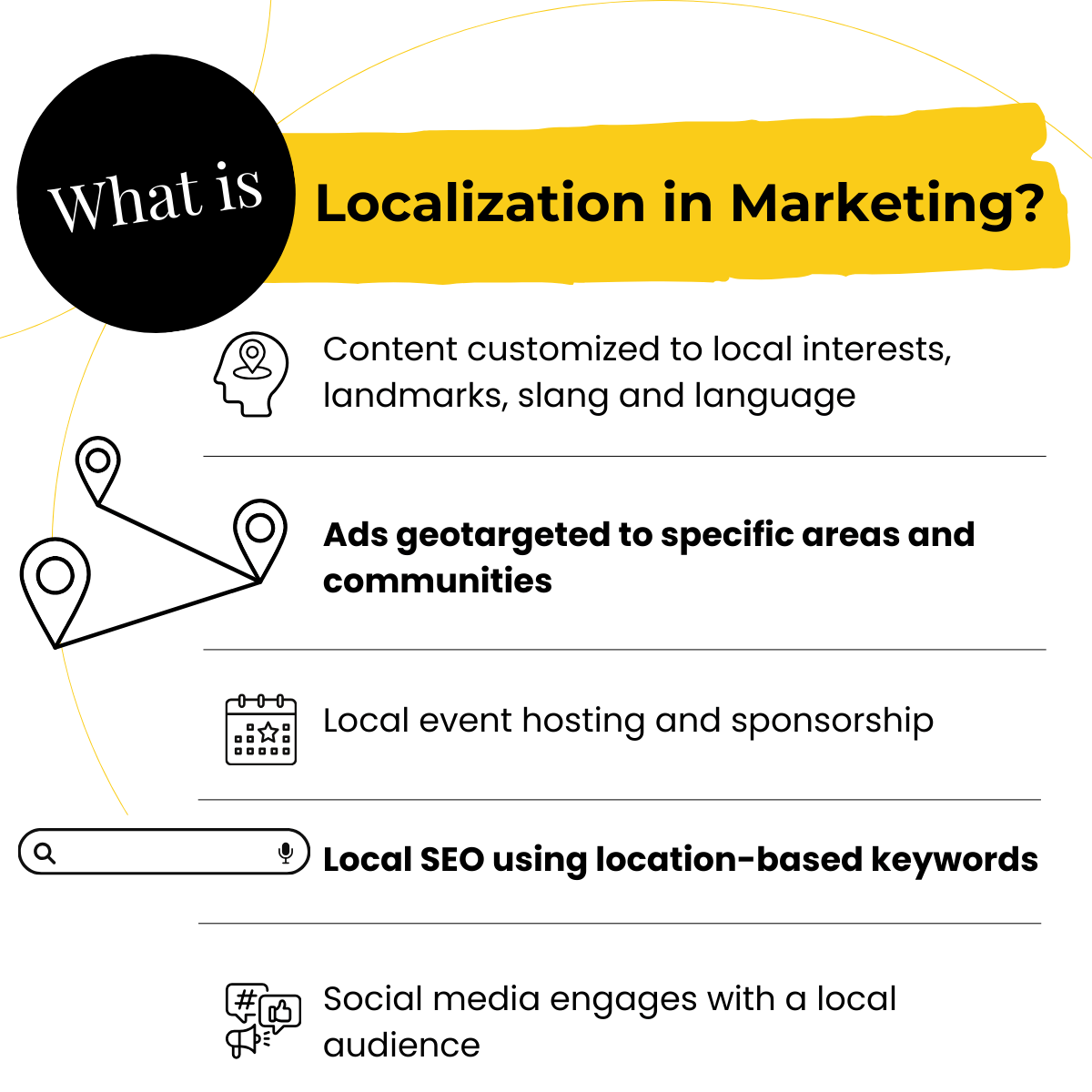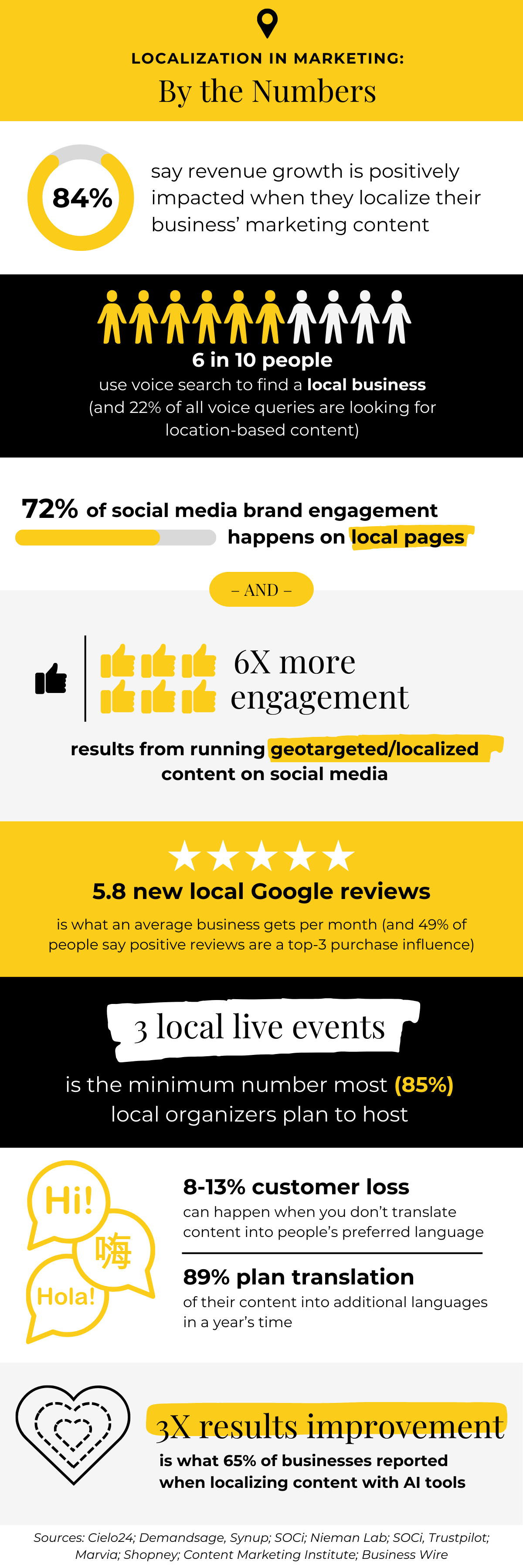Search for topics or resources
Enter your search below and hit enter or click the search icon.
February 6th, 2024 | 2 min. read
By Kim Kovelle

How well does your marketing speak to your local audience? You won’t catch most Chicagoans calling their city “Chi-Town,” and Michiganders aren’t fond of “Michiganians.”
These small details show why localization matters. If your marketing doesn’t match local language, keywords or SEO targeting, you’re missing connections.
At Zoe Marketing & Communications, we’ve help businesses reach local audiences effectively since 2020. Here’s what localization means — and nine key stats proving why it works.
Localization tailors marketing to a region’s language, culture and preferences. It impacts both what people see (words, images) and what’s behind the scenes (keywords, geotargeting).

Common localization strategies include:

Most companies say adapting content to local markets — especially language nuances — has a “moderately” or “highly” positive effect on revenue (Unbabel).
About 58% of people use voice search for “near me” locations, and 22% of all voice searches look for location-based content. Optimizing for spoken searches is key.
Comments, shares, and DMs happen more often on local pages than national brand pages (SOCi). People value authenticity and local connections on social media.
Local content directed at local audiences gets six times more likes, comments, and shares (Nieman Lab). Targeting specific regions with social posts makes a major difference.
Your Google Business Profile is one of the first things potential customers see. Businesses in the top 3 search results have 21% more reviews than those ranked 4-10 (SOCi).
About 85% of local organizers plan at least three live events annually (Bizzabo). Hosting or sponsoring community events increases visibility and trust.
Localization isn’t just about regions — it’s about language. If you don’t translate key content into your audience’s preferred language and even lingo, you risk losing them.
Businesses worldwide are translating web pages, videos and ads to connect with more audiences (Unbabel). Even if you serve only English speakers, adjusting messaging for regional preferences makes an impact.
AI helps businesses tailor content to specific cultural nuances, boosting engagement and results (Business Wire). AI writing tools are making localization easier and more scalable.
The numbers don’t lie — localization drives visibility, trust and revenue. Whether through language, SEO or social engagement, businesses that localize effectively build stronger connections.
Want expert help tailoring your marketing? Zoe Marketing & Communications has specialized in regional marketing since 2020. Talk to us.
Still refining your strategy? Check out:
As Zoe Marketing & Communications’ content manager, Kim Kovelle brings over 20 years of writing and editing experience in metro Detroit. She has strong roots in community journalism and a knack for making complicated topics make more sense.
Topics:
